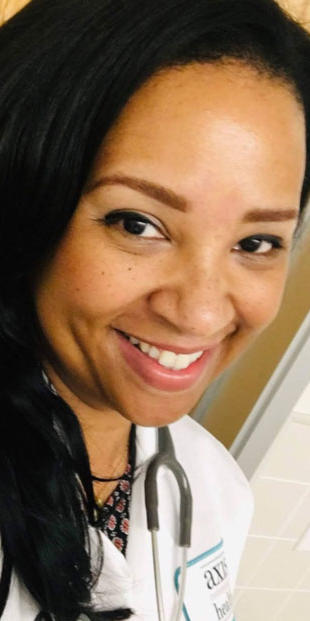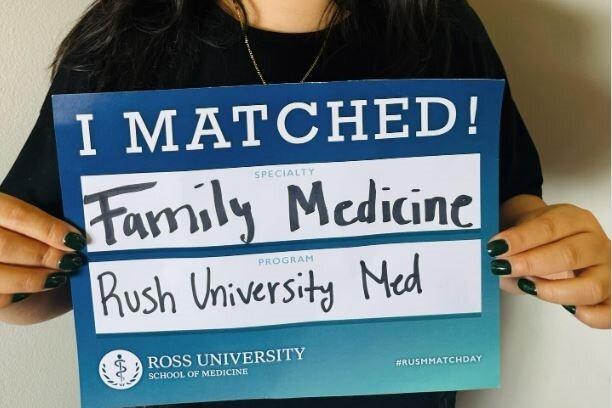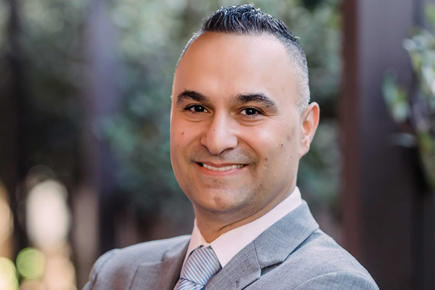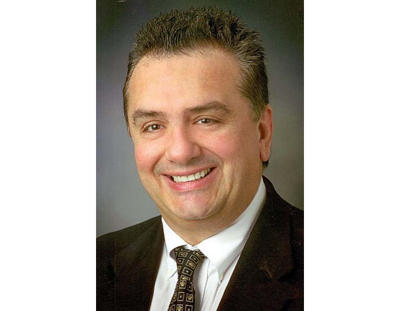Raised by a man who had a front row seat to the monumental American civil rights movement, Ross University School of Medicine (RUSM) alumna Gia Gray, MD ’03, truly understands the value of investing in a diverse healthcare workforce that enhances cultural awareness and racial perspective.
“When I see a Black person in my setting, I immediately sense a connection because I generally assume that they may have had similar life experiences as I have,” said the private-practice family medicine physician and adjunct clinical assistant professor at Stanford University School of Medicine. “In the back of my mind, I know that that person has hit resistance like I have and has survived and triumphed despite life’s challenges.” Representation matters, Gray continued, because Black physicians utilize their experiences to help minority patients achieve better clinical health outcomes.
Ensuring fairness and equality is something instilled since childhood, thanks to Gray’s mom Helen, a retired principal, and her dad, the renowned, late Barry Batson, Sr., a Chicago police officer assigned to protect Martin Luther King, Jr. in the late 1960s. Born after King’s assassination, Gray heard iconic stories about justice from her parents and older siblings. “We had a structured upbringing with an emphasis on education,” Gray said of her three siblings, all of whom are college educated. “I was raised in a middle-class home in the inner city of Chicago and was taught to treat every person the same regardless of color. Acceptance and tolerance of racial differences starts in the home. I am so grateful for my parents who never taught hate.”
Judged by Color
Gray was also taught to respect police officers, though she encountered a humiliating experience — being pulled over and frisked — on her way to drop off a white friend, despite her pleas that her father was on the force. “He asked why I was in this neighborhood this late at night.”
Early in her career, Gray remembers caring for an older white male patient who ended the visit by saying, “you’re really smart for a colored girl.” She froze. “I felt very confident about the visit, but everything felt erased after his comment. Growing up in the 1970’s, I was so surprised to hear someone refer to me as ‘colored,’ like a crayon. It definitely shook my confidence, but I recovered quickly, which one always has to do.”
Gray admits it can be a struggle to find other Black physicians as mentors. “I didn’t grow up with parents who were doctors, so my decisions were trial and error.” She suggests finding a mentor in medical school, perhaps through the RUSM alumni network, or searching local medical society directories that usually include physician photos. “It’s really about finding someone who may have that shared experience and gaining their support early on.”
Blurring the Lines
To foster greater understanding among the races, Gray supports open and honest dialogue along with sensitivity training. “Race itself is a social construct and has no biological meaning. DNA is everything.” She has spent more than a decade studying genealogy and located white descendants who enslaved her family. They met in person and held in-depth discussions about race. “People should explore all parts of themselves to achieve greater understanding.”
Gray now serves as an alumni resource, mentoring Black RUSM students and encouraging them to move past demeaning remarks and calculated insults. “Remember the end goal. Your past doesn’t determine your future and even though the road might be bumpy, you need to keep pushing through.”
Upon reflection, the mom of two praised RUSM for its acceptance, progressiveness and leadership preparation. “When you have had roadblocks and struggles early on in your career and finally achieve your dream… you feel so accomplished. It feels amazing to be a physician in these times, an African-American physician. I wish there were more of us. Our communities need to see our presence, and our patients need us to help build trust for better medication compliance, which can lead to better health outcomes.”
For more information about how to connect with Dr. Gray, email Alumni Relations.
Make sure to check out our Black History Month Alumni Spotlight seminar.
RUSM Diversity and Inclusion Taskforce
A group of 16 RUSM students, faculty, colleagues and alumni have begun leading a holistic review of diversity and inclusion at the University and will soon deliver a report of short- and long-term recommendations. This is the first of many steps to sustain change at the infrastructure level.
As RUSM prepares to engage, train, educate, advocate and invest in this process to align with the Black community at our University and in all the underrepresented and marginalized communities in which we serve, we invite others to share feedback with us because we know the fight for social justice is a community collaboration.




